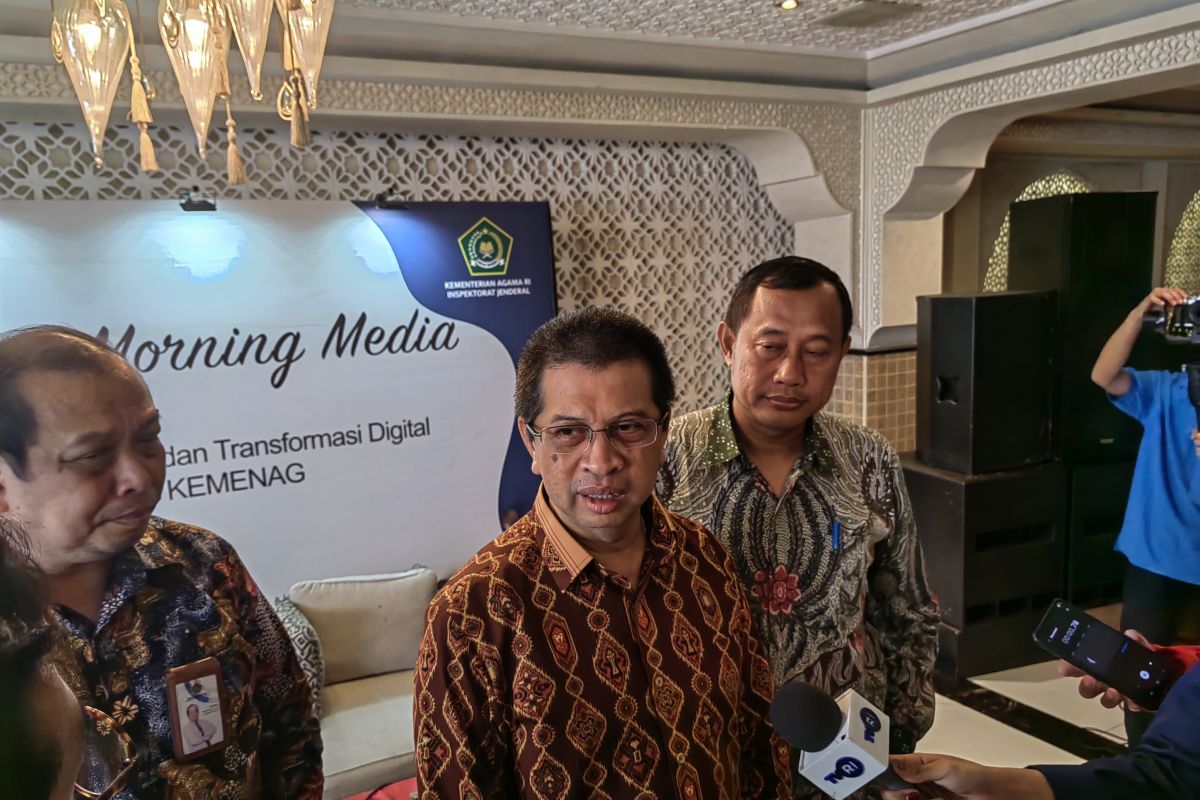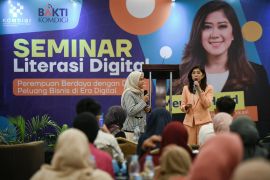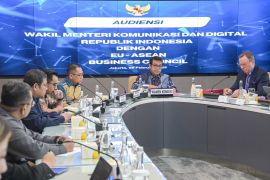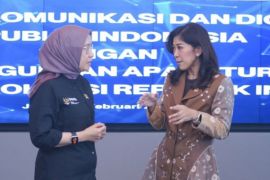"Digital transformation will not only make public services easier but also prevent corrupt practices," the ministry's inspector general, Faisal, said here on Thursday.
He informed that the inspectorate general, as the "eyes and ears" of the Ministry of Religious Affairs, has continued to supervise the effectiveness and efficiency of the current digital transformation in the ministry.
Faisal underlined that the role of the inspectorate general in supervising the digital transformation is important to ensure that it is implemented successfully.
Currently, the Ministry of Religious Affairs has a super app named Pusaka. The application is being used by the ministry to provide various public services.
According to Faisal, the ministry is making efforts to minimize face-to-face meetings for administrative services. The step is being taken because the opportunity for corruption would be wide open if the provision of services remains very conventional.
"All public services (will) not require people to meet (in person); we are starting to improve it little by little. We are targeting that this year, the principle things can be reached, next year, ahead of completion, only developments are left," he said.
Faisal further said that, apart from carrying out its supervisory function, the inspectorate general also has the responsibility of implementing digital transformation in its supervisory tasks and functions.
Currently, it is developing e-audit and e-consultation applications as part of its digital transformation efforts.
"The development of those applications has reached around 70 percent progress, and they are scheduled to undergo functional tests this August," he said.
Related news: Digitalization narrows opportunities for corrupt practices: Minister
Related news: Economic growth impaired by corrupt practices: Minister Hartarto
Translator: Asep Firmansyah, Raka Adji
Editor: Azis Kurmala
Copyright © ANTARA 2023












